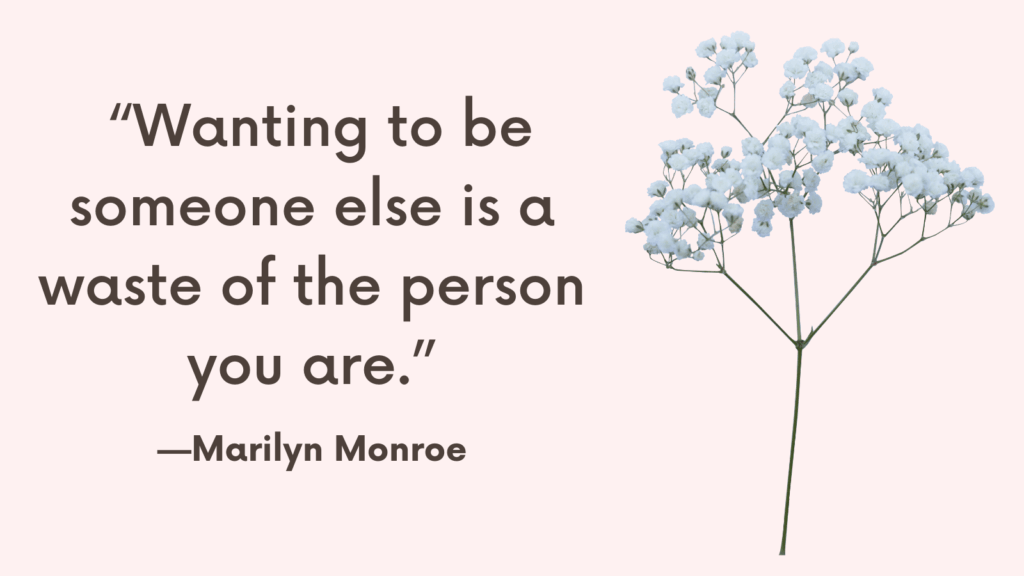If you feel stuck in the past, this post will help you learn how to make peace with past mistakes and never repeat them again.
Self-reflection is a healthy thing to do. It’s important to learn from our past mistakes.
However, when you start dwelling on the past, you become stuck in history which can be self-destructive and prevent you from enjoying your present moment.
People who tend to dwell much on the past usually share some of these signs:
- They wish they could go back in time and redo portions of their lives.
- They have major regrets about their past.
- They spend a lot of time wondering what their life would’ve turned out if they’d chosen a different path.
- They always remember the past as being the best days of their lives.
- They repeatedly replay past memories in their minds.
The longer you dwell in the past, the more you lose in the present.
So how to stop dwelling on the past?
Why We Remain Stuck In The Past?
1. You don’t believe you deserve happiness
Many people find it hard to forgive their past mistakes and move forward, they might subconsciously think to themselves that if they stay miserable long enough regretting and feeling guilty, maybe then they’ll be able to forgive themselves.
In other words, they don’t believe they deserve happiness.
Related: How To Change Negative Beliefs? The Ultimate Guide To Challenge Negative Core Beliefs
2. Dwelling on the past distracts you from the present.
Oftentimes, people dwell on the past as a way to escape today’s problems.
It can be tempting to focus on how much easier and happier life was back then. You start regretting some of the choices you’ve made that landed you here and you start wondering what life would’ve looked like had you chosen something else.
While it’s easy for us to imagine that life would’ve been better if we could change the past, the truth is, you don’t know what life would’ve turned out to be had you chosen differently.
It might not be as good as you imagine.
Related: How To Step Out Of Denial? Top 10 Steps To Overcome Denial When The Truth Is Heartbreaking

The Problem With Dwelling On Past Mistakes
Dwelling on the past isn’t going to change, but it can lead to more problems in the future.
The following are some of these problems:
1- You miss out on the present.
Remaining stuck in the past distracts you from experiencing new opportunities and enjoying your present moment.
2- You won’t be able to prepare for the future.
When you spend so much of your time and energy living in the past, you have little time and energy left to define your goals and set an action plan to achieve these goals.
3- You’ll struggle with making future decisions.
When you’re busy regretting past decisions and choices, it’s hard to trust yourself to make more decisions. You lose confidence in your decision-making ability.
4- Dwelling on the past can lead to depression.
Ruminating on negative events evokes negative emotions, and the sadder you become, the more you are to conjure up sad memories.
It becomes a vicious cycle that can keep you stuck in a negative emotional state.
5- Dwelling on the past can lead to health issues.
Constantly thinking about negative events can increase inflammation in your body, a 2013-Ohio-University study finds, and put you at a greater risk of diseases associated with heart disease and cancer.
Stuck In The Past? How To Make Peace With Past Mistakes
#1. Shift Your Thinking
Dwelling on the past starts with your thoughts, but eventually, it impacts your feelings and behavior. So when you shift the way you think, you can unstuck yourself and move forward.
To help shift your thoughts try the following:
– Schedule time to think about a past event. Sometimes we need to sort through our past memories, and the more you try to shut them down, the more you’ll think about it.
So instead of fighting past memories, set a time for yourself to think about it, like after dinner for twenty minutes or so. Then when the time is up, move on to something else.
– Give yourself something else to think about. Whenever you find yourself thinking about the ex-partner that cheated on you, shift your focus by giving yourself something else to think about like your next vacation.
– Establish goals for the future. It’s hard to dwell on the past when you’re planning for your future. Start setting long-term goals and divide them into short-term goals with a plan of action to achieve them.
#2. Keep Your Experiences In Perspective
Oftentimes, when we recall a negative past memory, we tend to exaggerate and catastrophize it. The truth is our memories aren’t as accurate as we think they are.
To help keep your experiences in perspective try the following:
– Focus on the lesson. Every experience is a chance for you to learn something and grow as a person.
Whatever happened to you in the past, accept that it’s part of your learning process. Maybe you learned to be more assertive because you allowed others to take advantage of you before.
– Think about the facts. Often, the way we feel can influence our perception of the experience. We focus on the way we felt during that experience which can significantly alter the facts and make the experience all the more unpleasant.
Once you focus on the facts, like who was there, what you wore, where you sat, what had been said…, you begin to discard the emotion surrounding the experience and you start dwelling less on it.
– View the experience from a different light. The same story can be told in numerous ways and still be true. If your current version of the story is upsetting, find a new way to look at it.
#3. Move Forward
Many people hold the misconception that the amount of love they have for someone is directly proportional to the amount of time they spend grieving.
The truth is, there’s no right amount of time to grieve someone or something before you’re able to move forward.
Moving on in life requires working actively to make the best decisions for you and to create new memories by living in the present moment.
Here are some ways to help make peace with your past:
– Give yourself permission to move forward. Moving forward doesn’t mean that you’re going to leave the memories of your loved one behind, nor does it diminish from your love for them. It simply means that you can enjoy the moment and make the most out of your present.
– Write letters to your old self and people from your past. Write down about your pain, guilt, resentment, and even appreciation and throw these letters away
– Recognize the emotional and physical toll of dwelling on the past. Dwelling on the past can be satisfactory in the short term. However, in the long haul, the consequences on your emotional and physical health can be destructive.
– Practice radical forgiveness. Whether you’re dwelling on the past angry and hurt because you can’t forgive yourself or because you can’t forgive someone else, radical forgiveness will help you let go of that hurt.
Keep in mind that holding grudges isn’t going to hurt anyone but you.
– Change the behavior that is keeping you stuck in the past. You might find yourself afraid to throw your ex’s letters or afraid to let go of your mom’s things after years of her passing away.
Accept the past and make the necessary changes that will help you unstuck yourself.
– Seek professional help if necessary. Some traumatic experiences might lead to mental health issues such as post-traumatic stress disorder.
Such issues can prevent you from making peace with your past and moving on. Professional counseling can help reduce your distress and move forward.
Related: Should We Forgive Others? 9-Step Guide To Free Yourself From The Past
How To Avoid Making The Same Mistakes?
Whether they were behavioral mistakes such as showing up late for work or cognitive like never planning ahead, we’re all guilty of repeating mistakes every now and then.
And it’s part of the learning process.
Sometimes we don’t learn the first time, but there are a few steps you can take to avoid repeating the same mistakes.
Here are some signs you might be repeating your mistakes:
- You find it hard to give up your bad habits because you keep going back to your old ways.
- When you often find yourself stuck and unable to achieve a goal, you don’t invest much time analyzing why your attempts to reach your goals are unsuccessful.
- You get mad at yourself because you can’t stay on track when you attempt a change.
- It feels like it takes so much effort to change something.
- You’re frustrated by your lack of self-discipline.
- …
#1. Examine The Reason Why You Are Repeating The Same Mistakes
1. Pride
One of the main reasons, why we keep repeating the same mistakes over and over, is denying these mistakes.
From a young age, we, sort of, have built the habit of trying to cover up our missteps so we won’t have to face the consequences.
However, when we deny our mistakes, we’re less likely to examine them and learn the lesson from them, which means we’re likely going to repeat them in the future.
2. Getting too comfortable
Another reason why people repeat the same mistake is that they get too comfortable. They won’t invest their energy in finding new ways to do things.
A man would keep turning back to alcohol simply because he doesn’t know any better way to cope with stress.
Avoiding such mistakes means making the effort to look for better ways and that can be too uncomfortable.
Related: Inner Teenager Healing: 14 Proven Exercises to Heal Your Inner Teenager and Wounded Inner Child
#2. Examine Your Mistakes
If you want to avoid making the same mistakes, you’ll need to learn the lesson and figure out exactly what needs to be changed.
Set any negative feelings you might have aside and look for the reason why you keep repeating the same mistake, without giving yourself excuses.
You can do this by asking yourself the following:
– What went wrong? Examine what thoughts, behaviors, and external factors are contributing to the mistake.
Someone might find it difficult not to overspend on their budget because the friends they’re hanging out with are shopping all the time.
– What could I have done better? As you examine the mistake and what lead you to repeat it, look for things you could have done better. If you failed to make a change, consider that maybe you didn’t stick with it long enough to become a habit.
– What can I do differently next time? Identify a clear strategy you can follow to avoid repeating your mistakes.

#3. Create A Plan
No matter what type of mistakes you want to avoid repeating, the key to success lies in developing a good plan including getting rid of any unhealthy temptations.
Sometimes developing healthier habits requires changing, not only your behavior but also your environment. If you want to quit using drugs, you might find yourself unable to hang around with these friends anymore.
This is why you need to develop a plan you can follow in order to resist repeating the same mistakes.
To create a successful plan of action, follow these steps:
– Replace your old habit. Instead of shopping every time you’re feeling down, you can find alternative strategies to make yourself feel better such as calling a friend or exercising.
– Be aware of signs you’re going to repeat a mistake. It’s important to be on the lookout for old behavior patterns that may come back. Maybe you’re beginning to skip going gym for a few days.
– Hold yourself accountable. It’s more difficult to hide your mistakes when you’re being held accountable.
A friend or a family member can help you stay on track, or you can simply use a calendar to chart your progress.
#4. Practice Self-Discipline
Self-discipline is something you develop with practice.
The more you control yourself and resist temptations, the more self-disciplined you become.
Here are some ways to help you achieve that:
– Start tolerating discomfort. It’s easy to give in to your old ways when you’re feeling uncomfortable.
Often, people convince themselves that if they just give in this once, it’ll make things easier.
The truth is, the more you give in, the less able you become to control yourself and vice versa.
– Talk positively to yourself. Instead of putting yourself down by saying things like “I can never do this”, or “this is too hard for me”, try reciting positive affirmations such as “I’m doing a great job working on achieving my goals.
It’ll increase your confidence and help you stay on track.
Related: 6 Powerful Techniques To Stop Spiraling Negative Thoughts from Taking Control
– Impose restrictions on yourself. Take steps that will make it difficult for you to give in to your old habits.
If you know you’re likely to spend so much time scrolling on social media, try leaving your phone in another room.
– Carry a list of all the reasons why you don’t want to repeat your mistake. Whenever you’re tempted to give in to your old behavior pattern, read this list for yourself.
It can help increase your self-control.
Repeating the same mistake is a sign that you need to find a new way to solve the problem, and it’s all part of the learning process.
Learning from your mistakes is the greatest key to growth and reach your full potential.
However, learning from your mistakes requires self-awareness.
Making Peace With The Past Makes You Mentally Stronger
Making peace with the past and refusing to dwell on it, doesn’t mean you pretend it didn’t happen. It means accepting your past experiences so you can live in the present.
Letting go of your anger, shame, and regret will free up your mental energy and allow you to achieve your goals in life.
FREE Printable Self-Love Worksheets (PDF)
References
Portions of this article were adapted from the book 13 Things Mentally Strong People Don’t Do, © 2013 by Amy Morin. All rights reserved.



